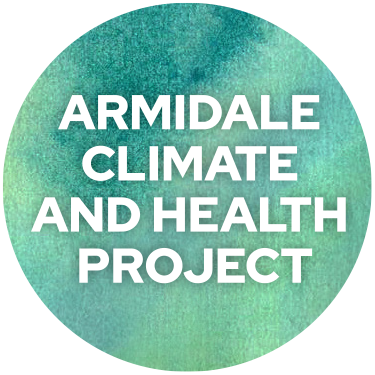Published in the Armidale Express, October 17, 2021: https://www.armidaleexpress.com.au/story/7472833/tornado-a-wake-up-call-for-climate-action/
Dr Sujata Allan, A/Prof Michelle Guppy and Dr Jennifer Hamilton
We’re writing this sitting at home without power, in the aftermath of the tornado that ripped through Armidale on Thursday night. As the SES works to clean up damage, patch rooves and restore power, the bigger emergency of climate change churns on and demands our attention.
In the lead up to COP26, the international climate change meeting in Glasgow this month, we in Australia have an opportunity to finally take this challenge seriously and commit to reducing emissions rapidly in line with the science. This is vitally important if weare to protect the health of our communities and ensure a liveable future for our children.
Extreme weather events such as superstorms are already occurring more often, and will continue to worsen under current climate predictions. These and other climate impacts such as more intense heatwaves, drought and bushfires directly impact our health. Medical doctors experience these impacts first-hand, and also observe daily how some people are more vulnerable than others – particularly people in rural communities. What can be done to address this crisis, which affects us all in different ways?
The climate and health crisis requires both small and large scale action.
The Armidale Climate and Health Project (ACHP) is examining ways that climate action can take place at a local level and improve community health. Building equitable community health begins by rethinking how we go about our daily lives at home, how we relate to one another and how we relate to land and water.
In the first instance, we can learn from how the land was tended for tens of thousands of years by Indigenous custodians and work to respect and value this knowledge. The ACHP is supporting the revitalisation of the Armidale Aboriginal Community Garden, seeking to build pathways for land access for Indigenous custodians to care for Country, and bolstering the local food network in collaboration with Sustainable Living Armidale.
These activities are simple and familiar, but offer models for new kinds of community relationships: working together to care for the earth and each other. This work is worthwhile in itself because it makes you feel good and healthy. Many of the actions that benefit the environment also benefit our health – to be outside, with your hands in soil, with other people improves human physical and mental wellbeing while nurturing plant, insect and animal communities.
However, this local action needs complementary responses at a national and international level.
While Australia often blames inaction elsewhere to justify the ongoing development of fossil fuel mines and unsustainable practices, the community of Armidale should take a different stance. We can model the world we want in our small tablelands community and demand of our representatives that this is the change we want to see elsewhere. We can, as a community, choose to centre Indigenous knowledge, seek to improve health injustice and address climate change right here in Armidale.
At the same time we also should demand national leadership and international collaboration.
Health professionals and other frontline workers have been working hard to keep our communities safe from the COVID pandemic. Doctors are in a bind when it comes to climate change, relentlessly treating symptoms (such as worsening of chronic disease from heat stress, asthma from fire smoke, poor mental health from drought and extreme weather events) with no access to a cure.
Those who have the capacity to cure this issue need to act and do so now. We have no more time to waste.
Australian politicians have listened to doctors and experts when dealing with the COVID pandemic, and we’re on track to being vaccinated and protected. Now it’s time for our leaders to listen to doctors and experts on community and health and act on climate change.
